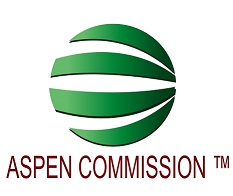Department and USAID programs support partner countries through assistance to improve economic governance in public finances legal frameworks, which are required to attract investment to such countries. In the interagency, USAID plays a central role in advancing domestic resource mobilization in partner countries and in implementing programs that foster more open, transparent, and robust public finance systems and business-enabling environments around the globe. To promote fiscal transparency, the Department of State/USAID Fiscal Transparency Innovation Fund (FTIF) builds the technical capacity of governments to make their budgets and spending transparent and the capacity of civil society to press for information on, analyze, and monitor government finances. The Department also uses targeted energy sanctions and other actions to deprive rogue nations and terrorists access to capital derived from the sale of natural resources (e.g., DPRK). The Department also uses energy sanctions as a tool when necessary to discourage other nations from engaging in behavior outside of existing treaties, agreements, and international norms. Cross Agency Collaboration The Department and USAID work with partner governments on regulatory reform and multilateral institutions to push for sound macroeconomic fundamentals. In addition to engaging bilaterally and through multilateral fora, partner agencies include the U.S. Departments of Commerce (DOC), Energy (DOE), Interior (DOI), Treasury (DOT), Justice (DOJ), the Securities and Exchange Commission (SEC), the Overseas Private Investment Corporation (OPIC), the Trade and Development Agency, the Federal Energy Regulatory Commission (FERC), and the Export-Import Bank of the United States. Risk The combination of political instability in major energy producers and disruption of global trade at a major chokepoint such as the Strait of Hormuz threaten global energy security. Dependence on a single or major supplier for energy imports leaves countries vulnerable to external pressure from countries that use energy as a geopolitical weapon. Competition for energy can lead to conflicts, and terrorists and rogue regimes could seek to exploit energy resources to fund violence and destabilizing activities. U.S. companies and citizens involved in energy projects abroad can face security threats and corruption. Pressure from relentless demand increases in Asia combined with a prolonged disruption in either supply or availability of energy commodities on the global market could put untenable stress on the institutional frameworks that have prevented a major global energy crisis for the past quarter-century. The continuing allure of closed economic systems as alternative models remains a risk to good governance and global prosperity. If leading developing countries pull back on anti-corruption and market reform efforts, other governments may be tempted to de-prioritize these critical initiatives.
PROMOTE AMERICAN LEADERSHIP THROUGH BALANCED ENGAGEMENT
Strategic Goal Overview America First does not mean America alone. The United States is a beacon of liberty, freedom, and opportunity. Since the conclusion of the Second World War, the United States has led the development of a rules-based international order that allows nations to compete peacefully and cooperate more effectively with one another. We worked together with allies and partners to build the institutions and structures to defend the sovereignty, self-governance, security, and prosperity of all nations and peoples. Yet past successes alone cannot ensure this system will continue indefinitely without being renewed, rejuvenated, and made to be truly reciprocal. As the President stated in his remarks at the 72nd session of the United Nations General Assembly, “We are guided by outcomes, not ideology. We have a policy of principled realism, rooted in shared goals, interests, and values.”9 The ability to ensure peace, security, and prosperity requires a more principled and balanced approach to our engagement with our allies and partners: balanced between opportunity and responsibility; between shared goals, interests, and values; and between assistance and enforcement. U.S. foreign policy must first serve Americans and our national interests, with the United States as a leader and integrated member of the global community. Through alliances and partnerships, the United States promotes mutual security and economic interests in cooperation with like-minded countries. The United States moreover continues to play a leading role in international and multilateral organizations, presenting opportunities to build consensus around American values, advancing American national security, economic, and development goals; and rallying collective action with American leadership. However, no one nation should have to bear a disproportionate share of the burden of responsibility to protect against common threats. The United States will continue to be the global leader in preventing the spread of disease, promoting protections for human dignity and rights, and facilitating humanitarian efforts around the world -- projecting American values as we stand shoulder to shoulder with people in their hour of need. It is who we are as Americans. The Department and USAID will continue to pay our fair share but will not commit to invest without returns. The Department of State and USAID must encourage, prepare, and support our allies and partners to meet their obligations. We are committed to maximizing the impact of American taxpayer dollars and ensuring that the foreign assistance the agencies invest in lead to sustainable results.
|
Endorsed by the

World Markets
-- Teddy Roosevelt, 26th President of the United States of America
Universal Peace Congress Commission ™ All Rights Reserved 2024
IBS INTERNATIONAL BOARD OF STANDARDS
Universal Peace Congress Academy of International Relations, Philosphy Politics and Innovation - International Political Foregin Relations Public Policy Council. The Aspen Commission ™ is an Association Registered in Colorado and is also a listed as an Limited Company CO USA.
CEO Commission Join Mission Ethics Home Continuing Ed Government Jobs Awards Degrees Press Release Congress Condemning Violence Certification newspapers Diplomacy markets Links Careers Disclaimer
Accreditation Bodies: www.GAFM.com * www.GAFM.org * www.CertifiedProjectManager.eu * www.AAFM.org * Certified Project Manager * Certified e-Commerce Consultant * Royal Law Society * Royal Business Society * Royal Business College * Royal Fellows * Royal Economics Academy * Oxford Law School * AAFM * Certified International Project Manager *